Ishrat Sahgal is known for her creative vision as well as sustainable business ideas. She grew up in Chandigarh but calls Delhi and London her home today. After studying interior architecture and art history, she created a new venture – Mishcat Co. The company boasts a beautiful array of uniquely designed carpets.
The special aspect of these carpets is that they are made by using sari yarn which is leftover scrap after creating saris. This upcycle is reducing waste by repurposing it into something incredibly inspired. The carpets themselves are made with the collaboration of artisans in small villages in Rajasthan and Uttar Pradesh.
Ishrat is incredibly attached to this cause of bringing traditional Indian culture and craft to a global platform. She has been in an impressive list of achievers – and the most notable achievement being one of Forbes 30 under 30 in 2018. We had a chat with her about what makes Mishcat Co her passion venture and how it all began, below.
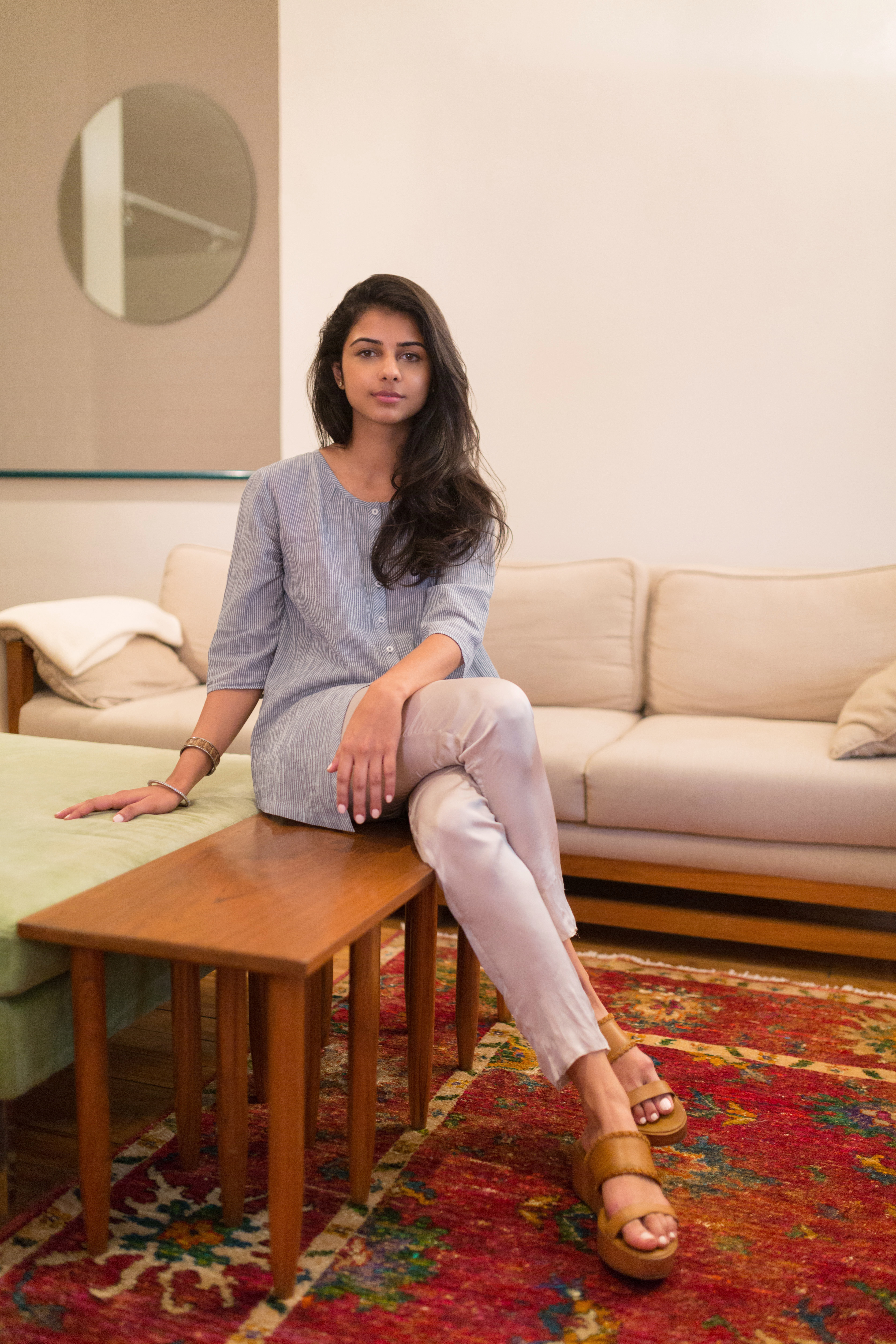
Meet our visionary and creative talent – Ishrat
-
Hi Ishrat! Thank you for taking the time to have a chat with us. Do give us a short bio.
Hello, my name is Ishrat Sahgal, I spend my time between Delhi and London. I studied Interior Architecture and Art History at Rhode Island School of Design (RISD), and today I have my own interior studio (Ishrat Sahgal Interiors) and my passion venture, Mishcat Co.
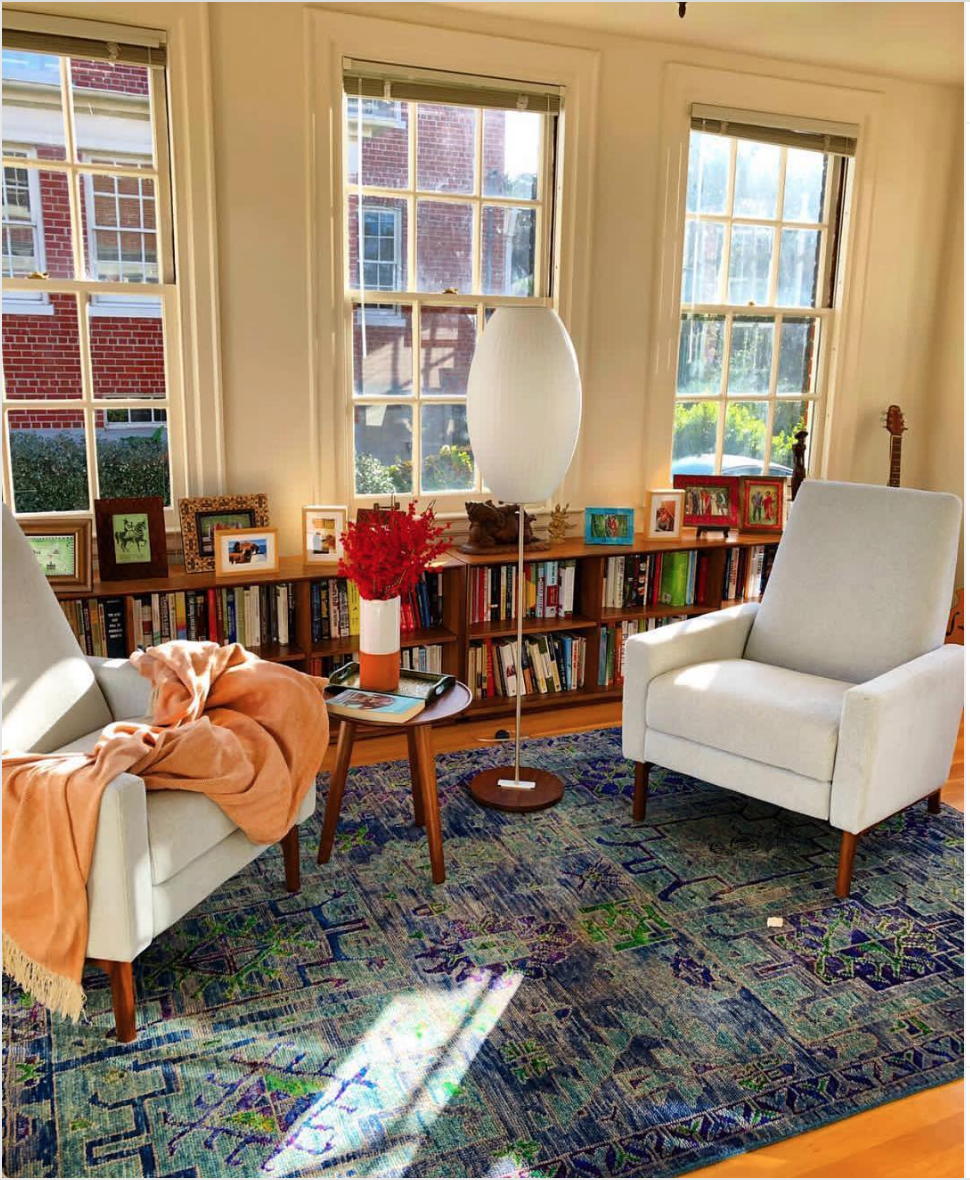
An interior with a Mishcat carpet
-
Tell us about Mishcat and Co. What makes it stand-out?
I’ve always been interested in supporting Indian craft, sustainability, innovation and of course, everything interior design! Mishcat Co. is the sweet spot between all of these interests.
Playful
-
‘Mishcat’ sounds very beautiful, tell us how you came up with it.
My little brother, one of the most special people in my life, used to call me Mishcat (Ishrat, Ish, Ishmish, Mishcat). In the present, I do consider the design house to be a culmination of my personality – it seemed fitting. I believe it to be playful, different and fun, which are all things I envisioned the brand to be.
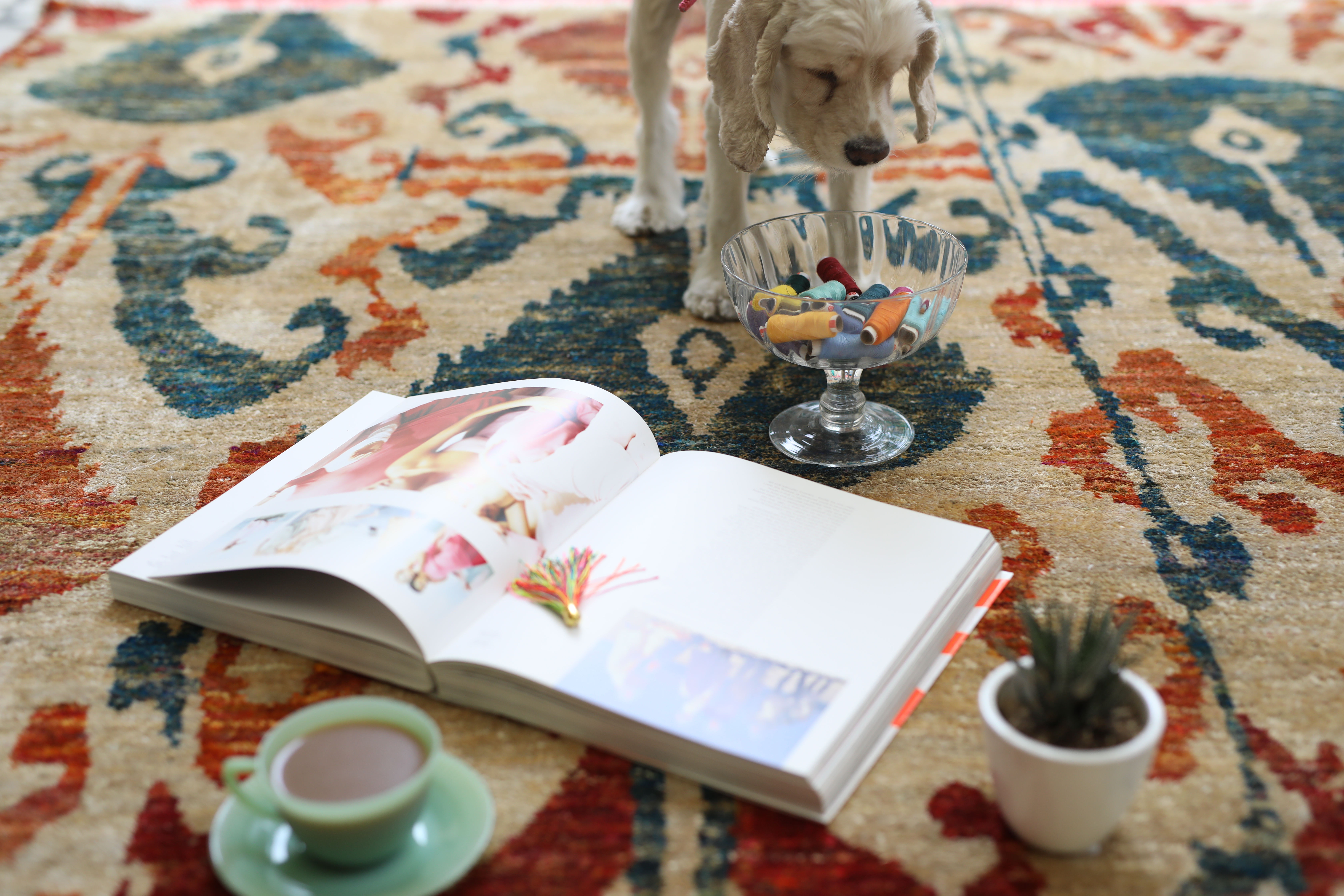
Being able to get the colours just perfect.
-
How did you get the idea for working in this particular niche?
I came across sari silk as a material and felt it was so beautiful that I wanted to work with it. Parallelly, while I was working on interior projects, I always felt that the floor covering/ carpet space could do with a bit of rustling up. One thing led to the next, and Mishcat was born.

Designs for days
-
3 adjectives to describe your designs.
Our designs are eclectic, evolving, and experimental.
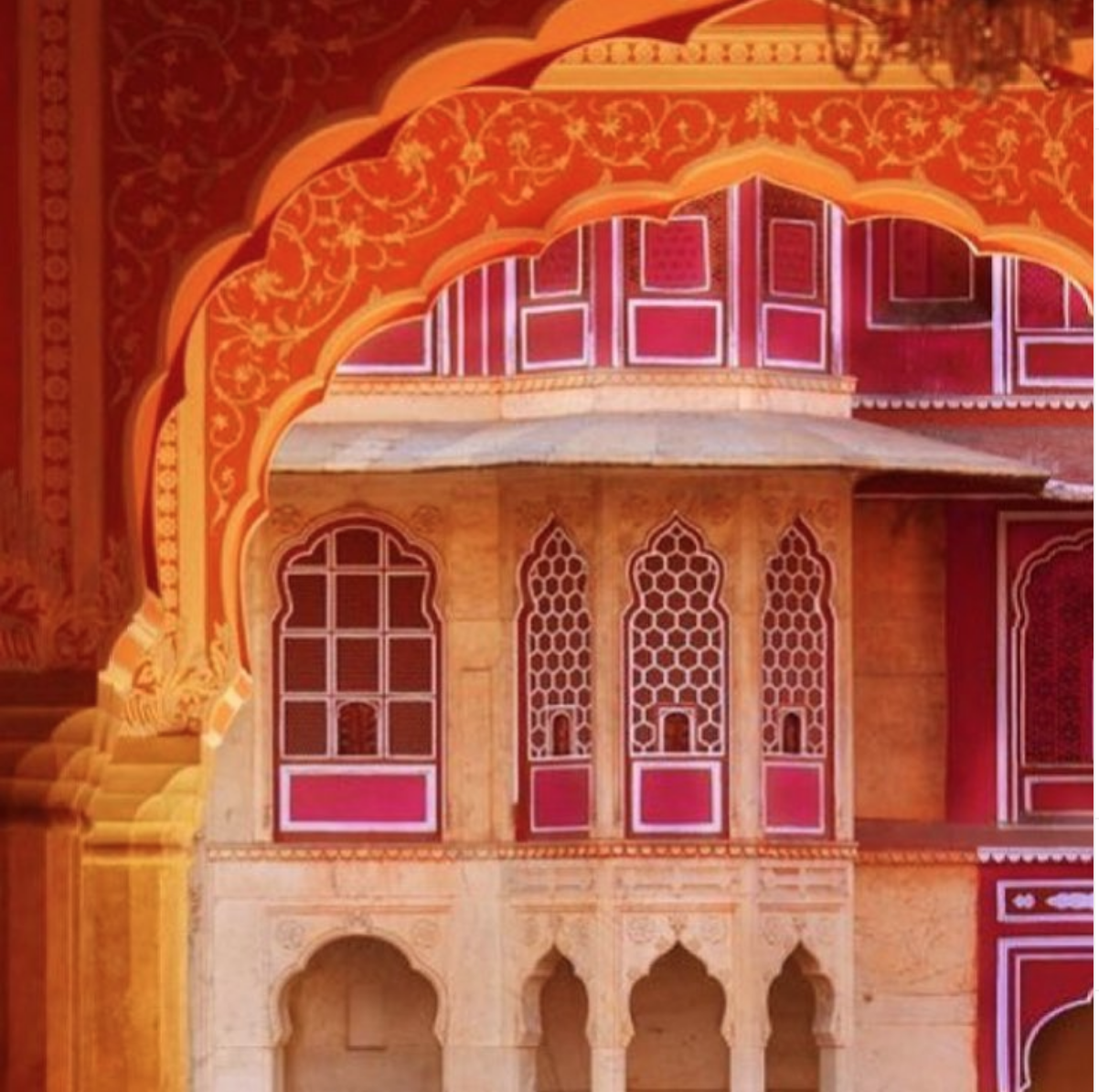
Colour palettes are everywhere
-
How have your roots influenced your work?
As a designer, your aesthetic is always built upon everything you have experienced in your life.
For me, my style has evolved every step of the way – from my childhood in Chandigarh, my travels around our India, studying in RISD in New York, and now being in London.
My appreciation and the inspiration I draw from traditional Indian craft has seamlessly moulded with a contemporary global design touch.
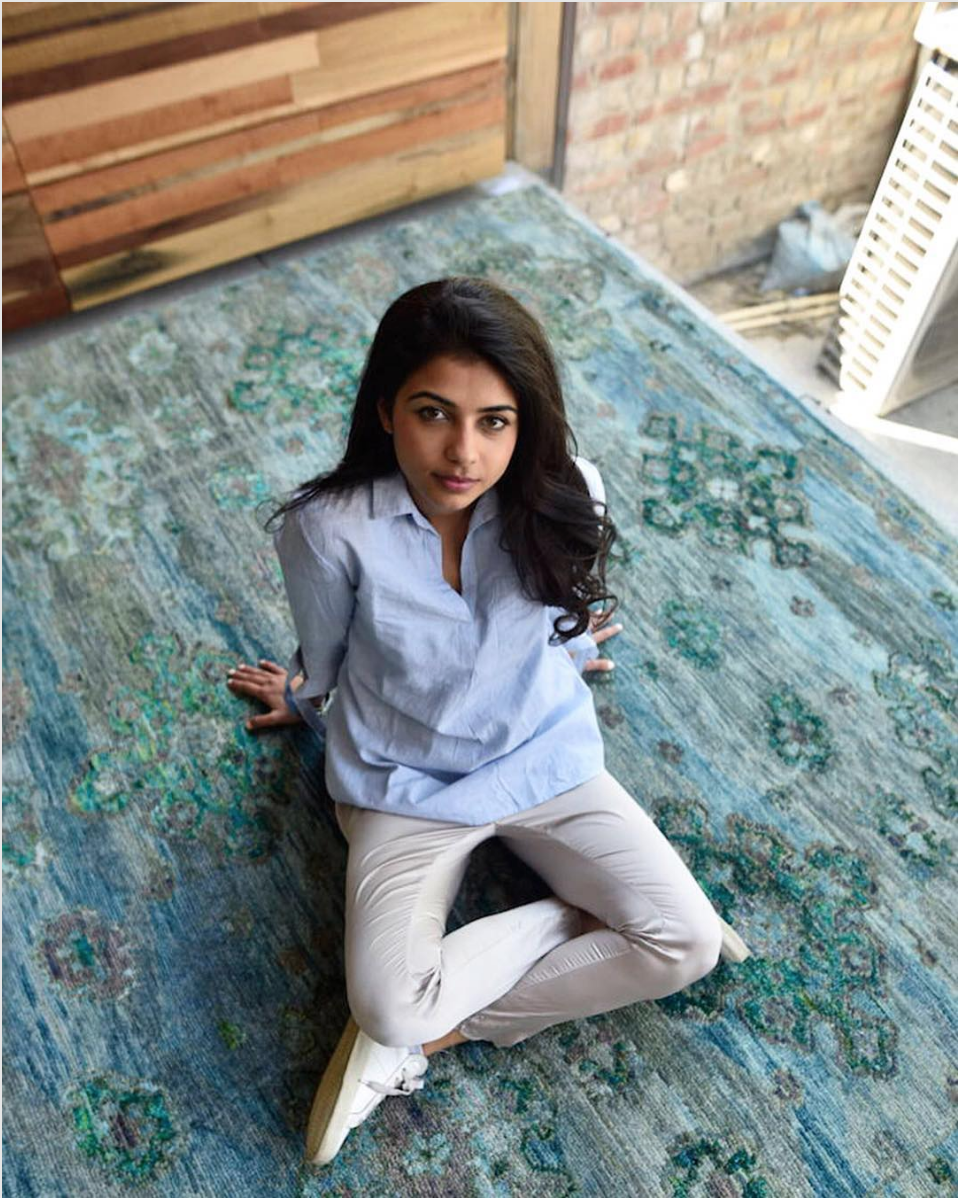
Ishrat lounging on one of her unique carpets
-
Have you always wanted to be an entrepreneur?
I’ve always wanted to have my own business. I guess I just didn’t think it would be two different businesses. My first studio was always Interior Architecture and Design, and then Mishcat Co. grew from that. I’m so lucky to have both!
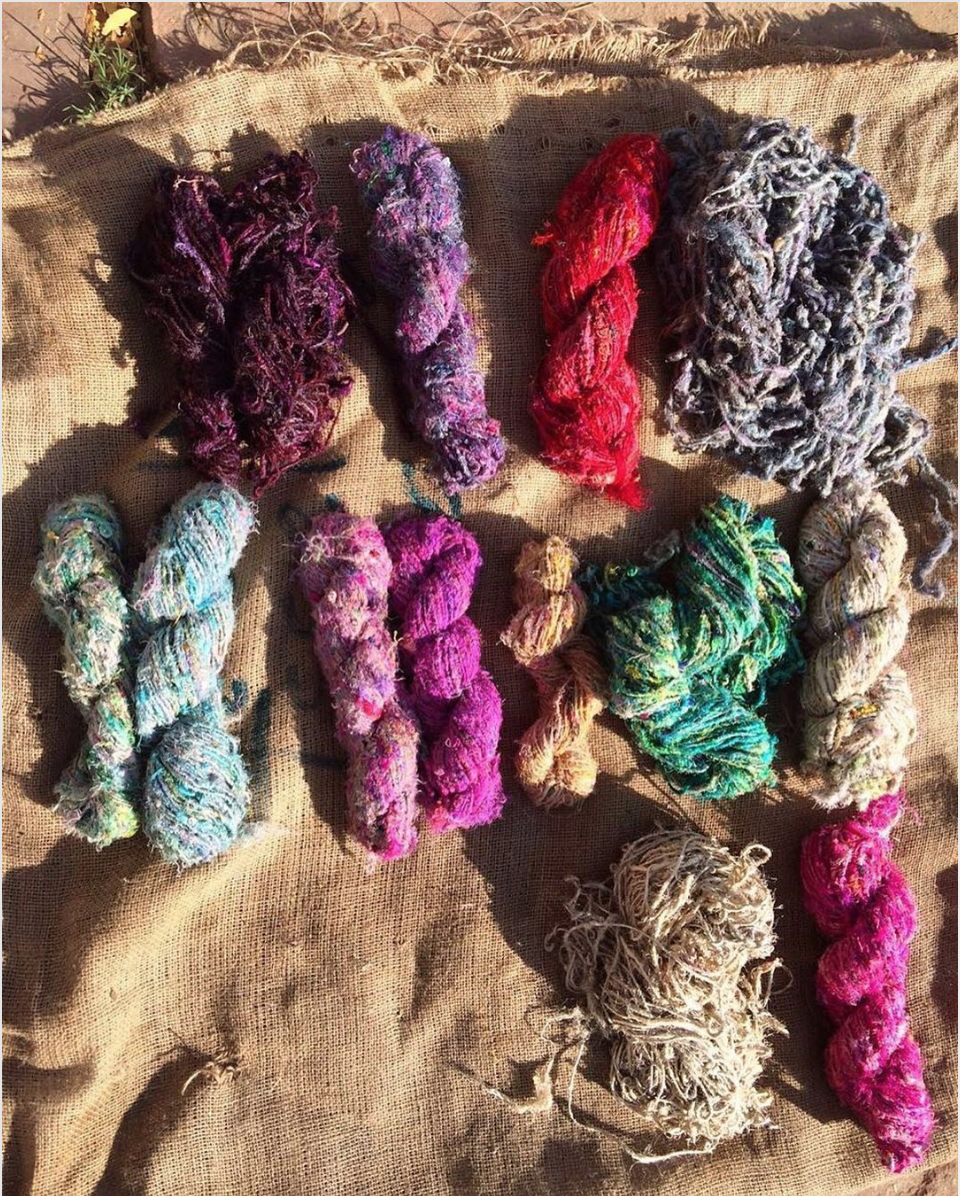
Skeins.
-
How do you source your material?
My main material is sari yarn. This is collected from independent sari weavers in the South. It is new, unused, and high-quality yarn that would otherwise be discarded. This yarn is then woven into skeins (a length of thread or yarn, loosely coiled and knotted) which are then used in our carpets. In this way, it is upcycled and given a purpose. Recently, we have also tried to combine this with other materials like wool.
-
Tell us about your creation process.
We believe that a carpet ought to be both the cornerstone as well as the foundation on which a room is curated. Mishcat Co. is a firm believer in hand made products. Once the sari yarn is collected, a design blueprint is used to hand knot each carpet. The blueprint is like an outline of a colouring book, within which the weaver does each knot. Where would each hue and each speckle go is attentively worked on by the weaver. Once woven, a carpet is then sheared, finished, washed and prepped to be sent to our studio!

A process picture
-
What are the biggest challenges you’ve faced and how have you overcome them?
Initially, because it is was a new material, we had many hesitations regarding its durability. Potential clients would ask me, “but its made from a sari, how can we walk on it?”. It was quite a challenge to convince them – but they were eventually convinced. They were wowed by the concept and started opening up to it.
“Another challenge was that, since we work with independent artisans and not a factory production, monitoring lead times and deliveries on custom orders was always a task. Everyone wants everything yesterday! We strive to make each carpet within 8-12 weeks. But since we are working with weavers spread across little villages in Rajasthan and Uttar Pradesh, its not always easy.
However, we have started to own the narrative and be more transparent with our clients. There have been delays ‘because a weaver’s cow was unwell’. It is endearing and our clients have always been so understanding. We see light in every situation and the playful humour in it – it adds to the intangible warmth of our products!”
Keep up with her carpet inspo through her Instagram!
- “While Studying in France, I Discovered Farm to Table Concept, and That Inspired My Fresh Food Venture” – Chat With Sriram Nair, Owner of Terra Cafe, Ahmedabad - September 14, 2020
- A Chat With Ashwin Chikerur – an Urban Sketcher and a Designer from Pune - October 31, 2019
- Dina Weber from Germany Chats About The Art and Soul About Bread-making and Her Bakery ‘SAPA Sourdough & Pastry’ in Mysuru - October 29, 2019
